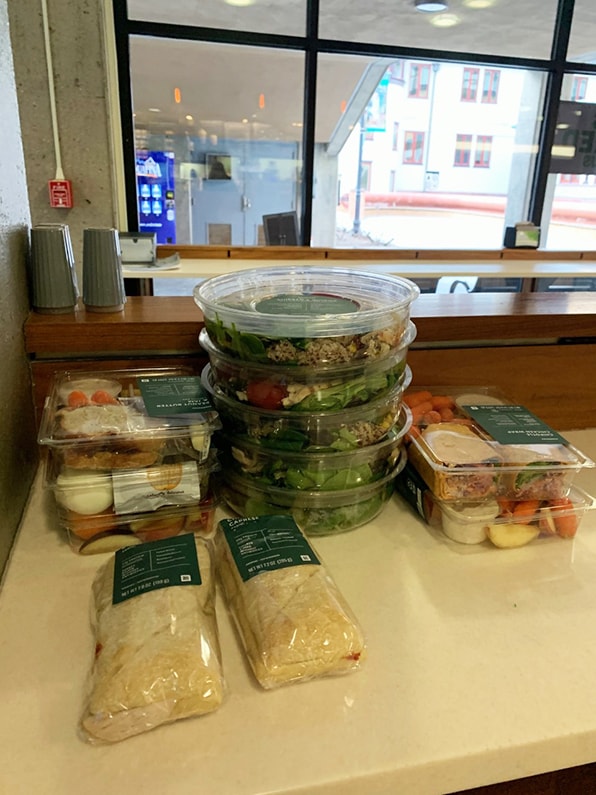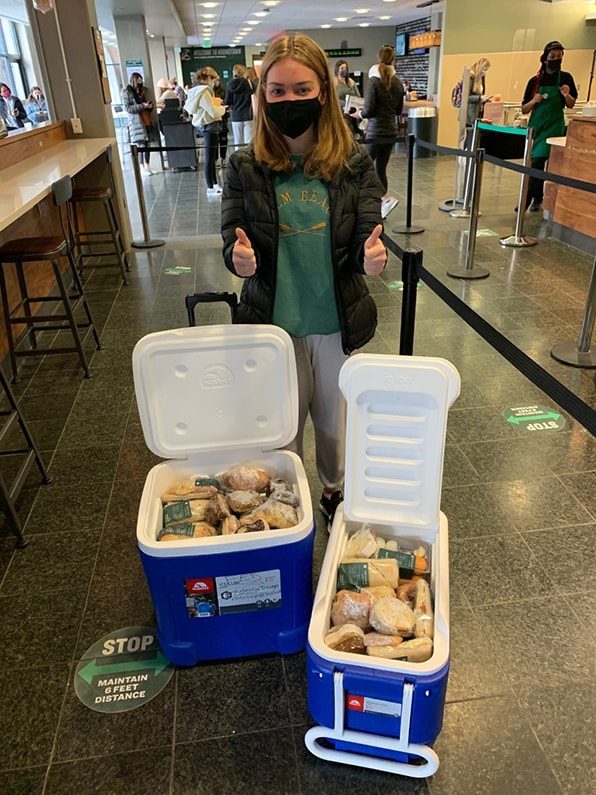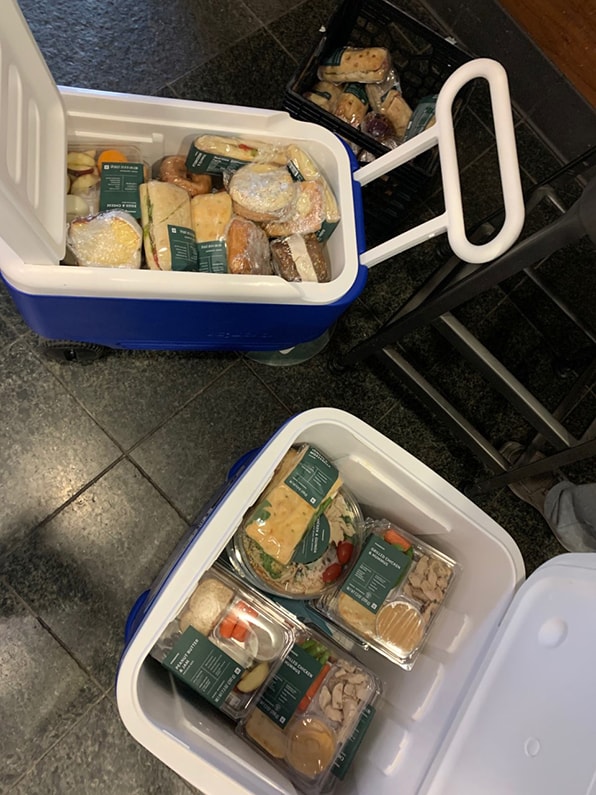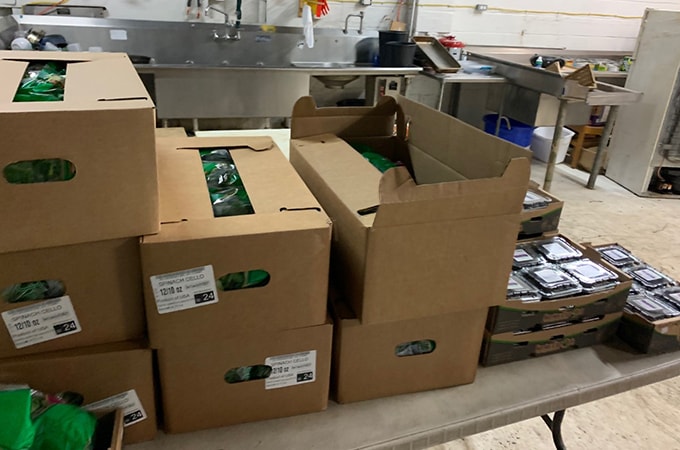Addressing food insecurity in Baltimore
Loyola’s student-run program, Food Eaten or Donated, fights food insecurity and reduces food waste on campus
Students eager for their morning coffee gather in a line in front of Loyola’s on-campus Starbucks. Amid the busy morning rush, a couple of students approach with large white and blue coolers.
The staff at Starbucks, excited to know leftover food isn’t going to waste, greet the students involved in Loyola’s Food Eaten or Donated (F.E.D.) club with excess food items from the previous day. F.E.D. volunteers organize packaged food items into large coolers then drive to Food Rescue Baltimore in Hampden. Dedicated to ensuring equal access to nutritious food in the city’s communities, Food Rescue Baltimore will distribute this recovered food at one of their free community markets.
The club’s mission is simple: to fight food insecurity in Baltimore and to reduce food waste on Loyola’s campus.

Reducing food waste
It all started at a café kiosk in Sellinger Hall in 2019. Jess Ludwig, ’19, could not ignore the amount of food she saw going to waste on the Evergreen campus. She decided to approach Dining Services with an idea.
She proposed a partnership between Loyola’s Dining Services and student volunteers to combat food waste on campus and to support Loyola’s surrounding community.


 Amelia Salvatore poses with meals that F.E.D. picked up for donation from the Starbucks in the Andrew White Student Center.
Amelia Salvatore poses with meals that F.E.D. picked up for donation from the Starbucks in the Andrew White Student Center.
“I love the way that one person can make a difference,” said Lindsay Winn, general manager for Loyola’s Dining Services. “This is the perfect instance of one person seeing something, deciding to do something, and rallying people behind a mission.”

Addressing local food insecurity
According to St. Vincent De Paul Baltimore, one out of four Baltimore City residents are food-insecure, meaning they do not have easy access to nutritious food on a consistent basis.
Since F.E.D. started in 2019, the student-run program has gathered and donated more than 1,000 pounds of food from Dining Services at Loyola.
F.E.D.’s food recovery efforts were on hold when Loyola moved to virtual learning and campus dining closed at the beginning of the pandemic. Now that students are back on campus for the spring 2021 semester, F.E.D.’s food recoveries are up and running again.

“Our plans for the semester are the same as always: recover as much food as possible to be distributed in Baltimore,” said Dani Leblanc, ’21, F.E.D. secretary. “In terms of expanding, we are getting more active on social media to highlight what food recovery looks like and to encourage more people to participate.”
Volunteers pick up food from Starbucks in the morning twice a week. “They come out with all of the food and they’re really excited to see the food being given to people in need instead of being thrown in the trash,” said Amelia Salvatore, ’21, F.E.D. president.

A community of volunteers
Rebecca Trump, Ph.D., associate professor of marketing and F.E.D. faculty moderator, explains that Keiona Turner, supervisor of Starbucks at Loyola, and Daniel Henry, executive chef for Dining Services, are instrumental in club F.E.D.’s success. “F.E.D. couldn’t do this without them.”
“I admire F.E.D. because they are helping people in need,” said Turner. “My little contributions are helping someone’s family, and I would like to think someone would do that for me.”
What’s more, F.E.D. offers students a manageable way to make a great impact on the environment and support the community. Most food recovery runs take about an hour; volunteers pick up the food from Starbucks in coolers, drop the food off at the location, and return the coolers to campus. Volunteers can commit to as many runs as they’d like, whether it be just once or every week throughout the semester.
We live in a world where there is so much food waste, for no reason, that it only makes sense to try and do something to effect change.
“It’s so gratifying to see immediate results of this initiative,” said Salvatore. “That food you just dropped off, those people are taking it out the door that minute and giving it to people who need it.”
While student volunteers must have a source of transportation, Trump says there are other opportunities (for those without cars) to participate with F.E.D.
“There are leadership opportunities, even if you don’t have transportation—including roles of club president, vice president of enrichment, and vice president of communications.”
“F.E.D. highlights something that we often take for granted: consistent access to food,” said Leblanc. “I don’t necessarily think about it, but people are living right down the street from our campus who are constantly thinking about it. We live in a world where there is so much food waste, for no reason, that it only makes sense to try and do something to effect change.”
If you’re interested in learning more about F.E.D., contact the club’s moderator, Rebecca Trump, at rktrump@loyola.edu.